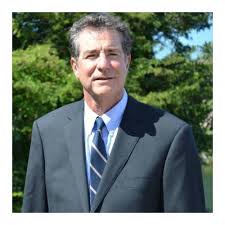"What went wrong? I trusted a resource not supported by science. I was taking unregulated hormones. It was eye-opening to learn that natural compounded bioidentical hormones were unregulated by the FDA. There was no standardization for producing the product, and no tests on the formulations. There are NO real natural hormone products available."
My comment: Jonekos clearly has a bad experience with this first doctor, and then incorrectly concludes there is something wrong with the bioidentical hormones, saying that biodientical hormones are not supported by science, unregulated, non-standard, and untested. Of course, this is all nonsense. Bioidentical hormones are heavily regulated, tested and supported by science. The statement , "There are NO real natural hormone products available" is more nonsense. Quite to the contrary, millions of women are using them every day.
Science DOES support the use of bioidentical hormones for menopausal symptoms. Go to Medline and do a search for estrogen or progesterone (link ) and 90,000 articles will come up. Dr Holtorf's article in PostGraduate Medicine, The Bioidentical Debat, cites 196 articles supporting that bioidentical hormones are safer and more effective than synthetic chemically altered hormones.
Bioidentical hormones are heavily regulated as both FDA approved products at the corner drug store and as compounded preparations. Compounding does not fall under the jurisdiction of the FDA, so FDA regulation is not needed or even desired. Instead, Compounding pharmacies have a separate system of regulation at the state and local level which is rigorous and recognized by the AMA. Look for a compounding pharmacy with PCAB accreditation .
1) Natural: The word "natural" is a marketing term. There is no scientific evidence that custom-compounded bioidenticals are safer or more effective or more "natural" than standard pharmaceutical bioidentical prescriptions. The only "natural" hormones are the hormones being made by your body.
2) Bioidenticals: Laboratories create formulations that are either identical (bioidentical) or not (non-bioidentical) to those in your body. There are FDA approved prescription estradiol products that are bioidentical that are not "compounded."
My Comment: This is correct.
3) Compounded hormones: Made in a pharmacy by combining, mixing or altering ingredients to create a customized hormone for an individual patient. Compounding pharmacies must be licensed and regulated by the State Pharmacy boards. However, they do not have to demonstrate the safety, effectiveness and quality control, based on large, scientific studies that the FDA requires of pharmaceutical manufacturers. Compounding pharmacies use chemically synthesized hormones made from plants --
the same government-approved ingredients that are used in a manufacturer's laboratory. "Compounded" formulations are neither safer nor more "natural."
My Comment: Compounded Pharmacies are not under FDA jurisdiction, and that is why they are not regulated by the FDA. Instead, they are regulated by the state and local government. To expect and insist on FDA regulation for compounding pharmacies is like saying your state driver's license is invalid because it was not issued by the federal government.
What Does FDA Approval Mean?
The author creates confusion about the meaning and significance of FDA Approval. Food and Drug Administration approval does not confirm that the drug is the most effective or the safest drug for you. FDA approval means the drug is more effective than placebo for its indicated use and benefits outweigh risks.
Non-FDA aproved indications
Drugs are FDA approved for certain medical indications. About 20% of the time, doctors prescribe drugs for non-FDA approved indications. For example, Dr Wendy Klein advocates the use of SSRI antidepressants as a non-hormonal treatment for hot flashes. This is a non-FDA approved use of the drug. At the same time, Dr Klein criticizes doctors who prescribe compounded bioidentical hormones as non-FDA approved. This is hypocrisy.
Chemically Synthesized Hormones
By using the phrase, "Compounding pharmacies use chemically synthesized hormones" , the author is again confusing the reader with the difference between synthetic hormones and bioidentical hormones. They are quite different. Synthetic hormones are chemically altered monsters. On the other hand, Bioidentical hormones have the same chemical structure as those found in the human body. How the hormone was made or manufactured is not important as long as the chemical structure is identical to the human hormone.
The North American Menopause Society, a non-profit organization of expert scientists and clinicians, "does not recommend custom-compounded products over well-tested, government-approved products for the majority of women." The Endocrine Society has stated that, "Post-market surveys of such (compounded) hormone preparations have uncovered inconsistencies in dose and quality."
My comment: The author omits the fact that these NAMS and the Endocrine Society have financial ties to the drug companies. Both organizations advocate the use of synthetic "monster" hormones, and as such, represent the financial interests of the synthetic hormone industry (such as Wyeth), rather than the health of the public. Half of the board of trustees of NAMS receive money from Wyethin the form of consulting fees or research support. Wyeth makes Prempro and Pristiq.
(Note: You can view every article as one long page if you sign up as an Advocate Member, or higher).





